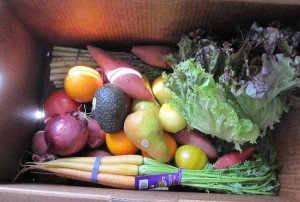The answer? There isn't much evidence of that at all. Bravata says when it comes to healthfulness, "there is, in general, not a robust evidence base for the difference between organic and conventional foods."
Over at NPR, the Salt blog added this context:
When it comes to their nutritional quality, vegetables vary enormously, and that's true whether they are organic or conventional. One carrot in the grocery store, for instance, may have two or three times more beta carotene (which gives us vitamin A) than its neighbor. That's due to all kinds of things: differences in the genetic makeup of different varieties, the ripeness of the produce when it was picked, even the weather.
So there really are vegetables that are more nutritious than others, but the dividing line between them isn't whether or not they are organic. "You can't use organic as your sole criteria for judging nutritional quality," says Smith-Spangler.
Of course, people may have other reasons for buying organic food. It's a different style of agriculture. Organic farmers often control pests by growing a greater variety of crops. They increase the fertility of their fields through nitrogen-fixing plants, or by adding compost instead of applying synthetic fertilizer.
That can bring environmental benefits, such as more diverse insect life in the field or less fertilizer runoff into neighboring streams. But such methods also cost money. That's part of what you are buying when you buy organic.
So if you really want to find the most nutritious vegetables, and the organic label won't take you there, what will?
At the moment, unfortunately, there isn't a good guide. But a lot of scientists are working on it.
In the meantime, Standen reports, children who ate organic produce had less pesticide in their urine than kids who ate conventional produce. But in both groups, pesticide levels were below federal limits.
